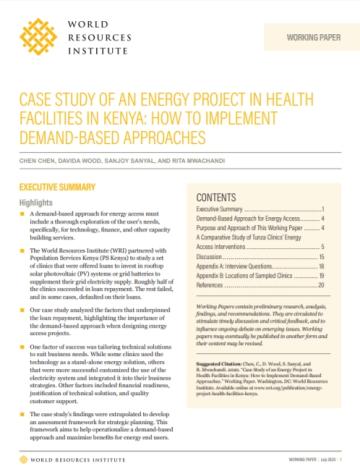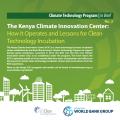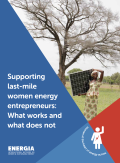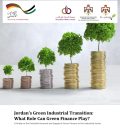
A demand-based approach for energy access must include a thorough exploration of the user’s needs, specifically, for technology, finance, and other capacity building services. This report provides insights from the World Resources Institute (WRI) and Population Services Kenya (PS Kenya) joint research on a set of clinics that were offered loans to invest in rooftop solar photovoltaic (PV) systems or grid batteries to supplement their grid electricity supply. Roughly half of the clinics succeeded in loan repayment. The rest failed, and in some cases, defaulted on their loans. This study analyses the factors that underpinned the loan repayment, highlighting the importance of the demand-based approach when designing energy access projects.
The joint research found that one of the success factors was tailoring technical solutions to suit business needs. While some clinics used the technology as a stand-alone energy solution, others that were more successful customised the use of the electricity system and integrated it into their business strategies. Other factors included financial readiness, justification of technical solution, and quality customer support. This report extrapolated findings from the joint research to develop an assessment framework for strategic planning. This framework aims to help operationalize a demand-based approach and maximise benefits for energy end users.




